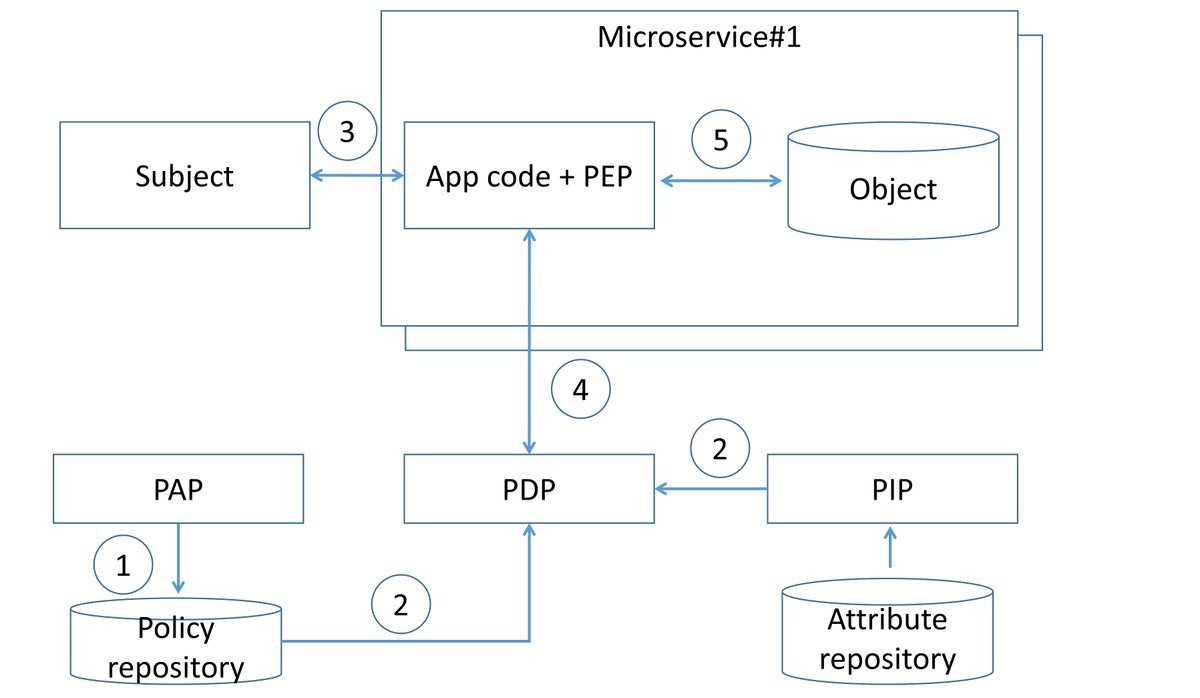
1/ We've analyzed the #fgaatscale problem:
We've shared our view on the market:
It's time to tell you what we are planning to build 🥁... 🧵
https://twitter.com/Auth0Lab/status/1326240848170848257?s=20
We've shared our view on the market:
https://twitter.com/Auth0Lab/status/1326606867993391115?s=20
It's time to tell you what we are planning to build 🥁... 🧵
2/ Project #sandcastle will be a globally distributed, highly reliable service for large scale, fine grained authorization.
It's based on @Google's Zanzibar paper: research.google/pubs/pub48190/, that powers #fgaatscale for @googledrive @googlecloud @YouTube and @Google other products!
It's based on @Google's Zanzibar paper: research.google/pubs/pub48190/, that powers #fgaatscale for @googledrive @googlecloud @YouTube and @Google other products!
3/ You'd:
1. Sign up for a subscription
2. Configure who has access to what
3. Pick an SDK for your favorite language/tool
4. (optionally) Feed your authZ data from existing sources into #sandcastle
That's the ideal future. At this point you'd have AuthZ for your app 🤯
1. Sign up for a subscription
2. Configure who has access to what
3. Pick an SDK for your favorite language/tool
4. (optionally) Feed your authZ data from existing sources into #sandcastle
That's the ideal future. At this point you'd have AuthZ for your app 🤯
4/ 📈 As your app grows, you wouldn't need to worry about AuthZ growing with you!
🤝 If you are using @auth0 for AuthN, it'd make your life even easier, but #sandcastle should be usable independently.
🤝 If you are using @auth0 for AuthN, it'd make your life even easier, but #sandcastle should be usable independently.
5/ 🎁 What'd be in the box?
🌎 Global: HA + low latency
📡 HTTP API to write permissions and check access
🛠 SDKs for languages and policy solutions e.g.: @OpenPolicyAgent
🔌 Plugins for @apachekafka, @PostgreSQL, etc. to feed data into #sandcastle
📜 Audit
We'd ❤️ feedback
🌎 Global: HA + low latency
📡 HTTP API to write permissions and check access
🛠 SDKs for languages and policy solutions e.g.: @OpenPolicyAgent
🔌 Plugins for @apachekafka, @PostgreSQL, etc. to feed data into #sandcastle
📜 Audit
We'd ❤️ feedback
6/ 🤔 How do we think it'll be used?
Either as a PDP or a very large PIP.
PDP mode works for many permission models and new deployments.
PIP mode will be used for migrations, and decisions that need global and local context.
cheatsheetseries.owasp.org/cheatsheets/Mi…

Either as a PDP or a very large PIP.
PDP mode works for many permission models and new deployments.
PIP mode will be used for migrations, and decisions that need global and local context.
cheatsheetseries.owasp.org/cheatsheets/Mi…


7/ What are our big open questions so far❓
⏱Latency
- How low does it need to be?
- What's the ideal consistency/latency tradeoff? Tunable?
☁️ Deployment
- SaaS only
- SaaS + "caches at customer edge"
- Marketplace add-on per cloud
We'd love your help answering those 🙏
⏱Latency
- How low does it need to be?
- What's the ideal consistency/latency tradeoff? Tunable?
☁️ Deployment
- SaaS only
- SaaS + "caches at customer edge"
- Marketplace add-on per cloud
We'd love your help answering those 🙏
8/ If you are exploring this problem space, reach out. We'd love to learn about what you are doing.
🗞 And leep an eye on the account for more news...
<end thread>
🗞 And leep an eye on the account for more news...
<end thread>
• • •
Missing some Tweet in this thread? You can try to
force a refresh




